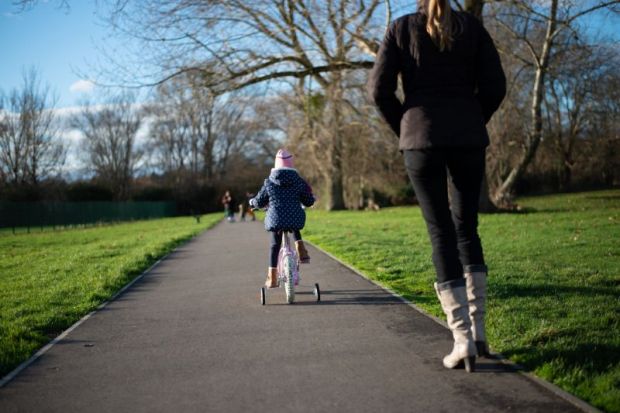US-China relations have the potential to improve under the Biden administration, but the two countries will need to reform their approach to scholarly and student collaboration for there to be a lasting impact on higher education, an expert has suggested.
Gerard Postiglione, emeritus professor and coordinator of the Consortium for Higher Education Research in Asia at the University of Hong Kong, said Sino-US relations were at the lowest point in 40 years, but he was “very hopeful” that this might change under the new US government.
“If you look at the relationship over the last 225 years, since the birth of the US, there have been lots of ups and downs. So in a sense, we could take a more positive view of the future,” he said during a webinar organised by the Centre for Global Higher Education.
“The only option is strategic stabilisation,” he added, borrowing an idea from former Australian prime minister Kevin Rudd. “The two countries need to be clear on where the red lines are and stabilise the relationship in order to have certain areas where there is…cooperation.”
Professor Postiglione said he had hoped that some of the China-related policies under the Trump administration would have already been reversed, but so far only reviews have been announced.
He proposed a series of recommendations for both governments and universities that could help create a new era of Sino-US university relations within the next year, including a reinstatement of the Fulbright programme in China and Hong Kong – a move he said was likely – and a reinvigoration of the Obama-era 100,000 Strong initiative, which aimed to have 100,000 US students in China between 2010 and 2014 but fell far short of that figure, according to Professor Postiglione.
He also called for a more targeted approach to the screening of Chinese scholars coming to the US, describing the “sweeping, very simplistic set of actions” that have been implemented over the past four years “nuts”.
On the China side, Professor Postiglione said the country must be “more open, inclusive and proactive in strengthening national scientific research cooperation” and must “allow more foreign scientists to work in China’s science and technology institutions”.
For higher education institutions, he highlighted the US-China University Presidents’ Forum, which took place at Columbia University in 2017 on the theme of “relations over the next 50 years”, as a helpful initiative. He suggested that it should be an annual forum in which “things like warning labels on courses or the issue of Confucius Institutes could be better discussed”.
Meanwhile, universities should facilitate virtual classes where undergraduates from the US and China can “start cooperating…to work on global problems” so they are used to collaborating before going into the workplace and eventually taking on leadership positions.
Professor Postiglione also criticised the tendency among some academics to refer to US-China relations as being like those of the Cold War, saying the “threat discourse dialogue is unhelpful”.
“It’s a lazy way of discussing something that doesn’t really resemble the Soviet-US relationship,” he said, highlighting that thousands of US and Chinese scholars travel between the two countries, which was not the case between Russia and the US during the Cold War.
Professor Postiglione said the “indicators for success” in 10 years would include “more stability in Sino-US university relations than we’ve had over the last four years, a track record of joint success in the sciences, [including] perhaps a joint Nobel on climate change [and the] improvement of campus atmosphere, and protection of university autonomy and academic freedom”.
Register to continue
Why register?
- Registration is free and only takes a moment
- Once registered, you can read 3 articles a month
- Sign up for our newsletter
Subscribe
Or subscribe for unlimited access to:
- Unlimited access to news, views, insights & reviews
- Digital editions
- Digital access to THE’s university and college rankings analysis
Already registered or a current subscriber? Login








